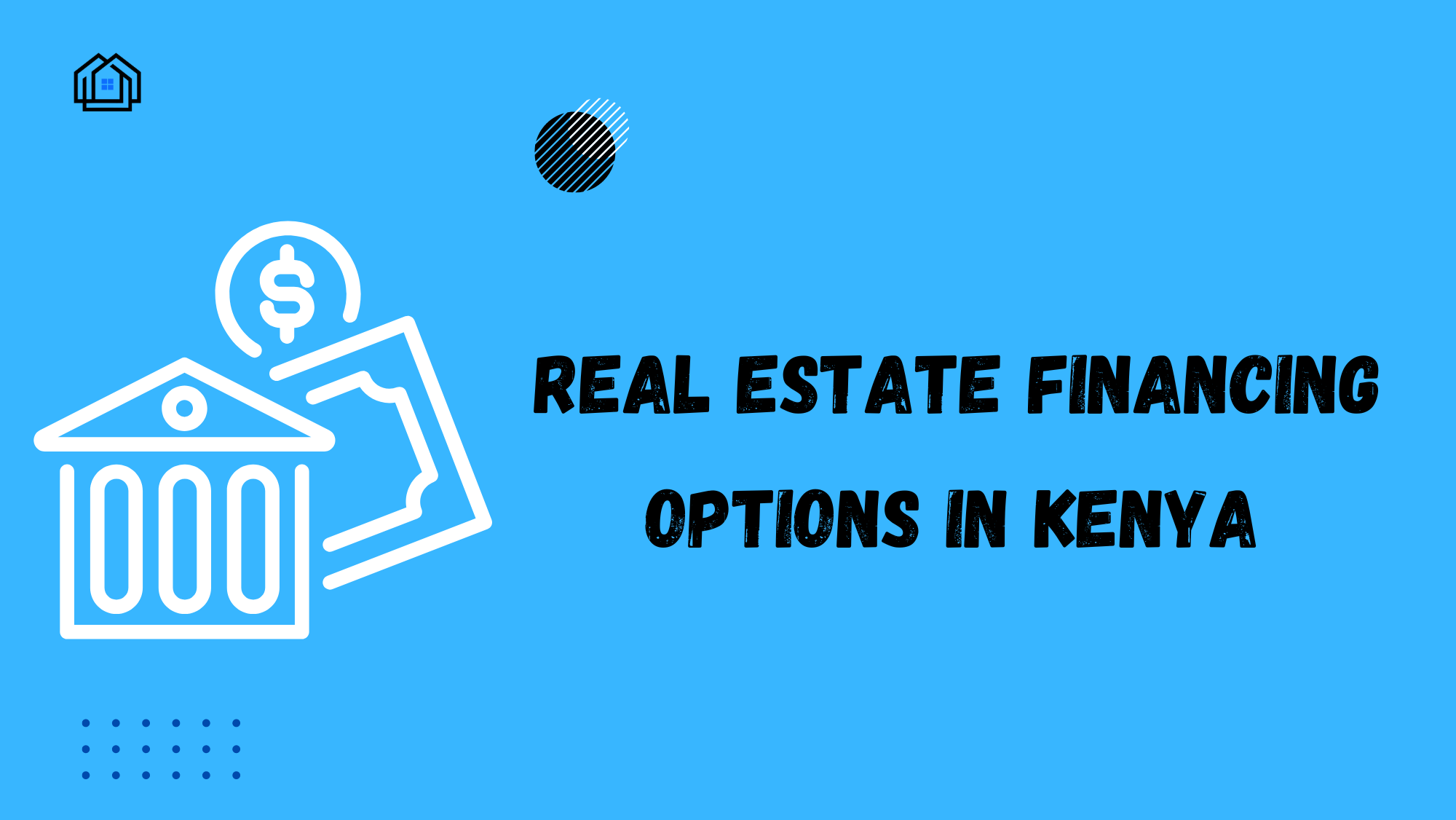Real estate is the most thriving industry in Kenya, thanks to the increased demand for residential and commercial housing. It is one of few businesses with guaranteed returns due to its appreciating nature. As a result, it has and still attracts many local and international investors.
The biggest challenge that hinders investors is finance, regardless of the industry. However, Kenya has various real estate financing options that keep the industry running. Suppose you want to venture into the real estate business or expand an existing investment; check out the available financing options you can consider in Kenya.
1. Personal savings
Using your savings is the easiest and safest funding source when you want to venture into real estate investment. However, you must research the type of property you want to invest, estimating how much you will need.
The challenge of self-financing is that real estate prices are constantly escalating, making it difficult to have a realistic estimation.
Also, you will have to save for a reasonable period to gather enough money to purchase a property. Additionally, you must have a high level of financial discipline to save until you can buy a real estate property.
2. Sacco
Sacco is the most efficient way of financing real estate investment, especially for low-income and self-employed individuals. However, you must have been saving with the Sacco to qualify for a loan.
Also, different Sacco has different approaches to lending; most consider your savings and the period you have been a member.
Suppose you would like to join a reliable Sacco that can help you purchase the property of your choice; it is prudent to conduct a serious check of the Sacco you would like to join. You must consider the entry fee, after how long you will qualify for a loan, interest rates, and the procedure of exiting the Sacco.
3. Joint ventures
Joint ventures are suitable for capital investors looking for projects with good returns. Real estate is the most thriving industry, and it has guaranteed high returns.
To finance a real estate project using the joint venture approach, capital investors (including a land owner) form a company specifically for the said project. They agree on several terms, including how the profits would be shared.
Once they agree on how the project will work, the land owner transfers the land to the company, and the investors provide funds for the construction.
4. Pooling resources together
This approach is ideal for individual investors with common investment goals; they can be family or friends. The pooling of resources creates a greater purchasing power of a more rewarding property through the economy of scale.
The idea behind pooling resources is to enable each contributor to achieve a goal they could not have succeeded in.
The group can be formed as an informal or formal partnership agreement. They then agree on how they will contribute towards the project, including land purchase and development. Once the property is finished, they proceed to the selling period or renting as agreed in their partnership agreement.
5. Bank loans
Kenya has many commercial banks that lend real estate investors the funding they need to finish their projects. However, you might have to use the acquired property as a security for the loan.
The advantage of getting financing from a bank is that they have long and flexible loan payments.
In addition, Kenya has several banks offering ‘Chamas’ investment loans. Some finance up to ten times the chamas savings with an extended payment period. They also have flexible security requirements and fast loan approval.
These are the standard required to qualify for a Chama investment loan in most commercial banks in Kenya.
- Must be formally registered for borrowing
- Must have at least a six-month history of saving with a bank or a Sacco
- Must demonstrate the ability to pay
6. Seller financing option
Seller financing is Kenya’s most popular type of real estate financing option. In this case, the property seller allows the buyer to pay for the property for a certain period before assuming the property ownership.
As a buyer, you must provide a deposit, most 30% of the property sale price, and the balance paid in installments of an agreed amount.
Seller financing provides buyers with alternative credit, especially when mortgages are hard to get. On the other hand, sellers can sell their properties faster and at a higher price.
7. Rent-to-own
Suppose you want to own a property but are not financially ready; you can consider a real estate company with a rent-to-own scheme.
Rent-to-own is an alternative home purchase model in the real estate market. In this arrangement, the prospective buyer can rent the house they intend to purchase for a certain period, with the payment going towards clearing the purchase price.
This type of real estate financing option is ideal for first-time property buyers who are not ready financially. However, this approach is slightly more complicated than the typical rental process.
Therefore, it is prudent to seek professional assistance from a real estate attorney to help you understand how it works and the risks involved. For example, there are two types of rent-to-own agreements.
- A lessor agrees to collect an agreed monthly fee for a given period, after which they transfer the property to the lessee
- Lessee agrees to rent a property slightly above the rental market price, the rent is deducted, and the balance goes towards the purchase price.
As a buyer, you must understand the two and make a sound decision before committing to the contract.
8. Moratorium on development loans
This is a real estate financing option in which a bank gives the developer a grace period of up to 24 months during the construction period without paying the principal sum.
The bank continues to finance the construction irrespective of speculative prices. Once the project is done, the bank begins to collect the principal amount plus interest charged.
The moratorium on development loans is the most peaceful real estate financing option since the development returns will cover the loan payments. However, some commercial banks require the developer to raise at least 30% of the gross construction costs.
Summary
Although real estate investment is a costly venture, these financing options reduce investors’ burden. All you need is to identify the most convenient, and you are good to go.



